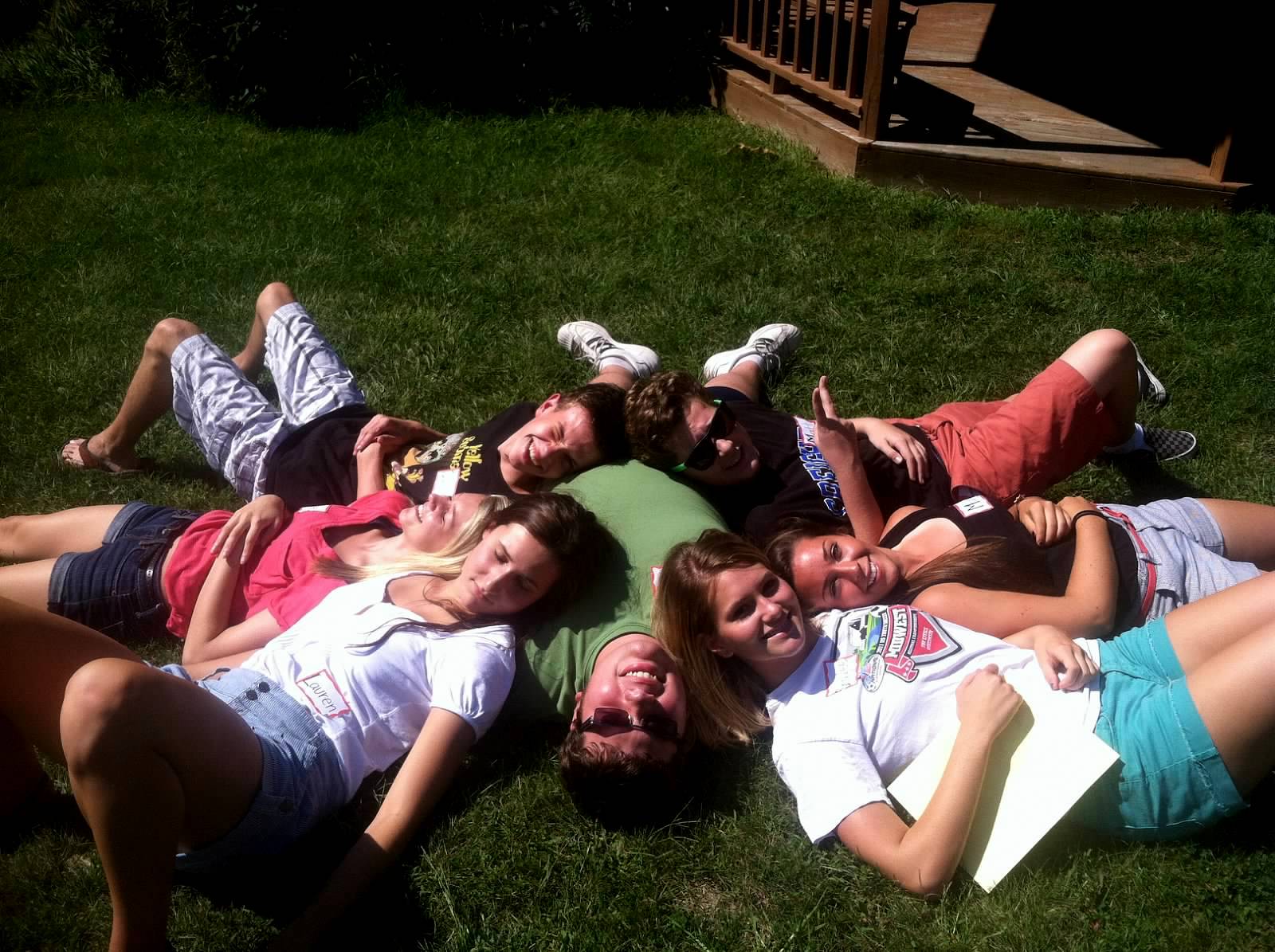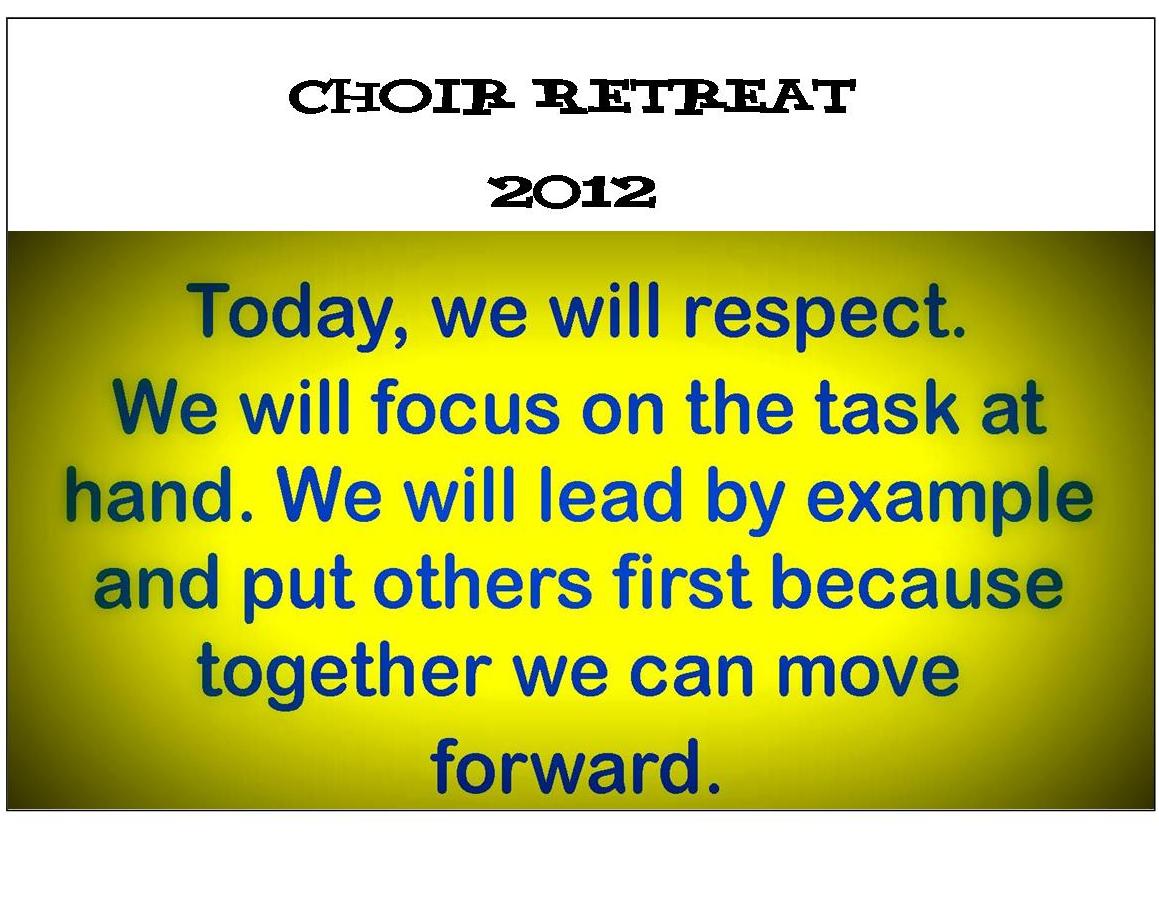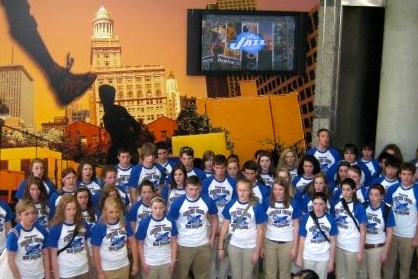I am a music educator born and raised in South Dakota. (Now, I could have some fun and deviate for a bit to talk about all the South Dakota stereotypes that are out there but we can save that for another time… J For the past 34 years, I have lived and taught vocal music in Sioux Falls, SD. My teaching includes 8 years with students at the junior high level and the last 23 years I have had the pleasure of working with high school students. My own high school choir experience was quite sterile. We sang in choir every day and I remember thinking we might be a good choir but team building was not something we did. I got to know the alto that was singing on either side of me and that was it. Even in college as a music ed major, there were no classes or even a mention on how or why is was important to develop positive relationships with students and between students. As a music educator when I moved from junior high singers to high school singers, I was lucky enough to be the assistant choral conductor for a year under a master teacher. It was through her teaching I discovered how important building community was in the overall success of your choir. Through workshops, volunteer and leadership opportunities at the state and divisional level in ACDA (American Choral Directors Association), I was able to learn and grow in my concept of building team and community. I have had the privilege to observe and work with Paul Gulsvig, Andre Thomas, Brad Holmes and Eph Ely, just to name a few. It is exciting to note that there are so many outstanding professionals, young and old, in the choral community today. Find them and learn from them. I am, by no means, one of those professionals but I have had the opportunity to build a successful choral program and building community is at the foundation of that success. What I can do is to tell you why building community is important and share some ideas that have worked for me. I’ll share ideas that take time and work well on retreats, ideas that take 15 minutes down to ideas for the last 5 – 8 minutes of rehearsal. What’s nice about this conversation is that you are also invited to share ideas or comment on activities that are suggested. I am always looking for new ideas for so this is a win-win for everyone.
Why is building community or team building important? First, success builds success. If your choirs sing well and the singers feel good about what they’ve done together, not only will it be easier to recruit more singers, those singers may come away with the knowledge that they have touched the heart of someone listening to their choir. That’s kind of a no-brainer, right? You want your choirs to sing with correct notes, rhythms, age appropriate tone, warmth and free tone; to sing with expression and feeling. To do all of these things the singers have to trust you, the director. They have to trust that you won’t embarrass them and that all those silly things you ask them to do in rehearsals is for the benefit of their choir. Singers need to also understand that being successful means believing that everyone in their choir is important and everyone matters. How do you develop trust so they will buy into your vision and technique? How do you get middle school and high school students, with underdeveloped frontal lopes and in their world that only revolves around them, to see what you see? They have to get to know each other! Research tells us that the more students get to know each other, the more they recognize individual strengths of choir members, develop empathy, feel safe and supported, understand group dynamics and how it affects teamwork. Every fall I begin with my singers on a retreat. I believe it is the single most important community building I do each year and one of the reasons we are successful.
Coming next RETREATS 101 – PART 1, the “how”, “where”, “why”, etc. For now I will leave you with a quote from America’s foremost choral master, Robert Shaw:
“What I’m afraid you don’t see – and what you must see it that the group of which you are a member is not a glee club or stock company. You don’t join the group. You believe in it. It’s very darn near a religion. It’s a way of life. Either you feel the fellow next to you is an important human being, and you like him, and you try desperately to understand how he feels about what he sings about, and pool your creative passions to make something a darned sight bigger than either of you could make alone – or this isn’t your kind of choir. Either the music you sing is torn out of you – or you ought not to be singing. We sing too much just for the fun of it – not nearly enough for the must of it. I don’t think anybody should sing if he can help it. I’d like to belong to a choir that sings because it just can’t help it.”









